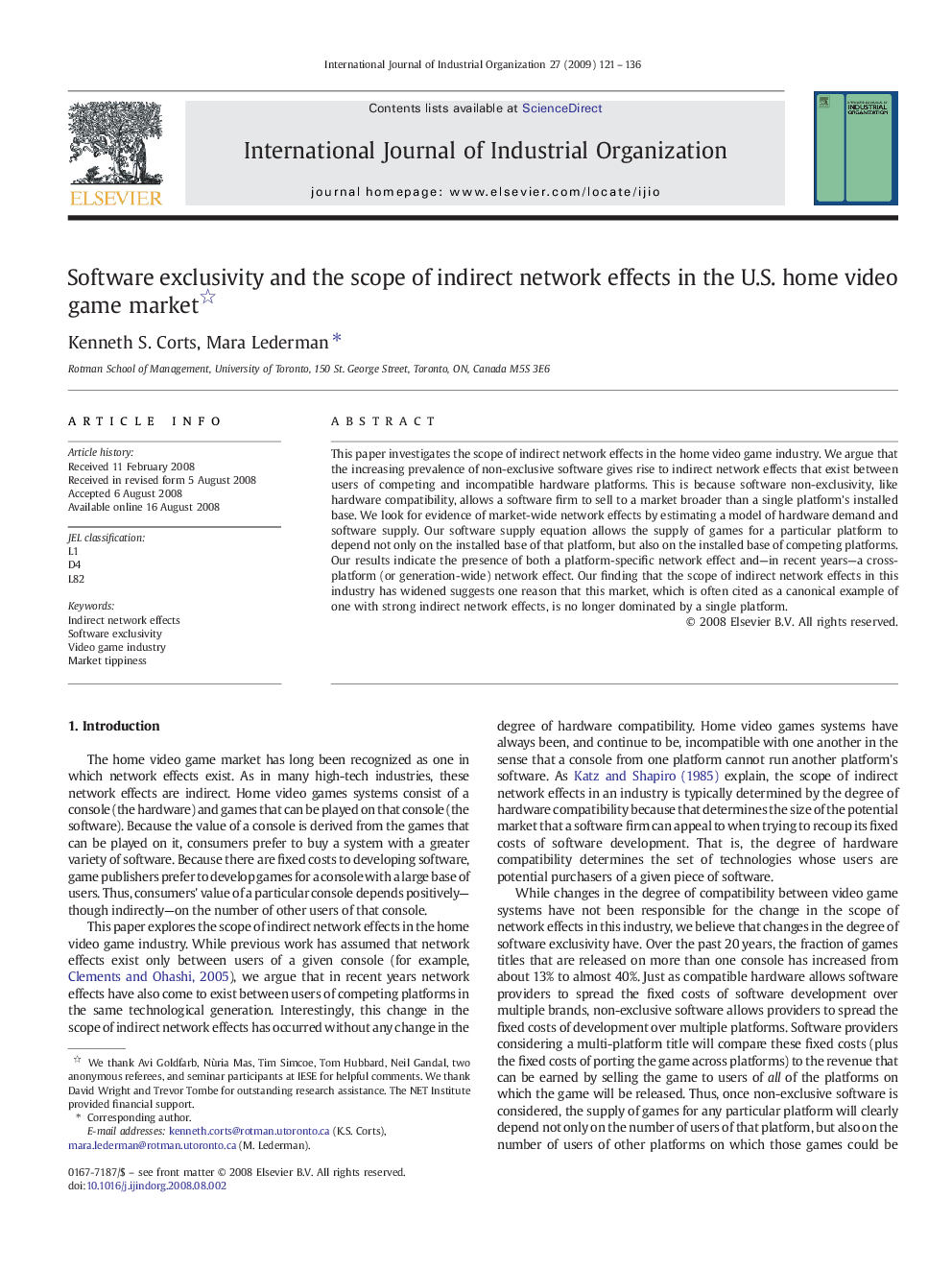| Article ID | Journal | Published Year | Pages | File Type |
|---|---|---|---|---|
| 5078628 | International Journal of Industrial Organization | 2009 | 16 Pages |
Abstract
This paper investigates the scope of indirect network effects in the home video game industry. We argue that the increasing prevalence of non-exclusive software gives rise to indirect network effects that exist between users of competing and incompatible hardware platforms. This is because software non-exclusivity, like hardware compatibility, allows a software firm to sell to a market broader than a single platform's installed base. We look for evidence of market-wide network effects by estimating a model of hardware demand and software supply. Our software supply equation allows the supply of games for a particular platform to depend not only on the installed base of that platform, but also on the installed base of competing platforms. Our results indicate the presence of both a platform-specific network effect and-in recent years-a cross-platform (or generation-wide) network effect. Our finding that the scope of indirect network effects in this industry has widened suggests one reason that this market, which is often cited as a canonical example of one with strong indirect network effects, is no longer dominated by a single platform.
Related Topics
Social Sciences and Humanities
Economics, Econometrics and Finance
Economics and Econometrics
Authors
Kenneth S. Corts, Mara Lederman,
